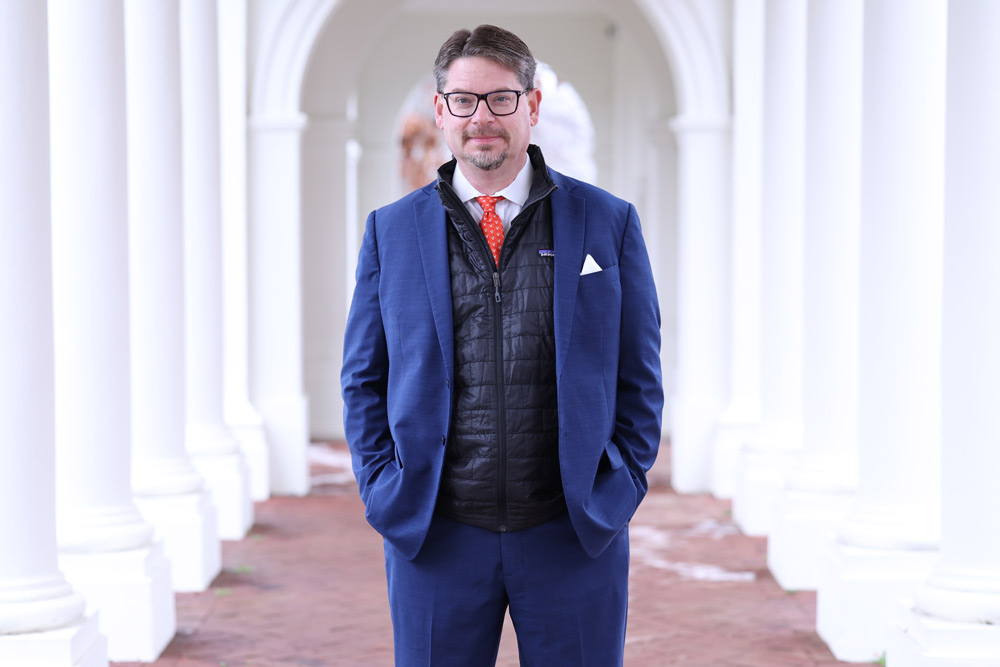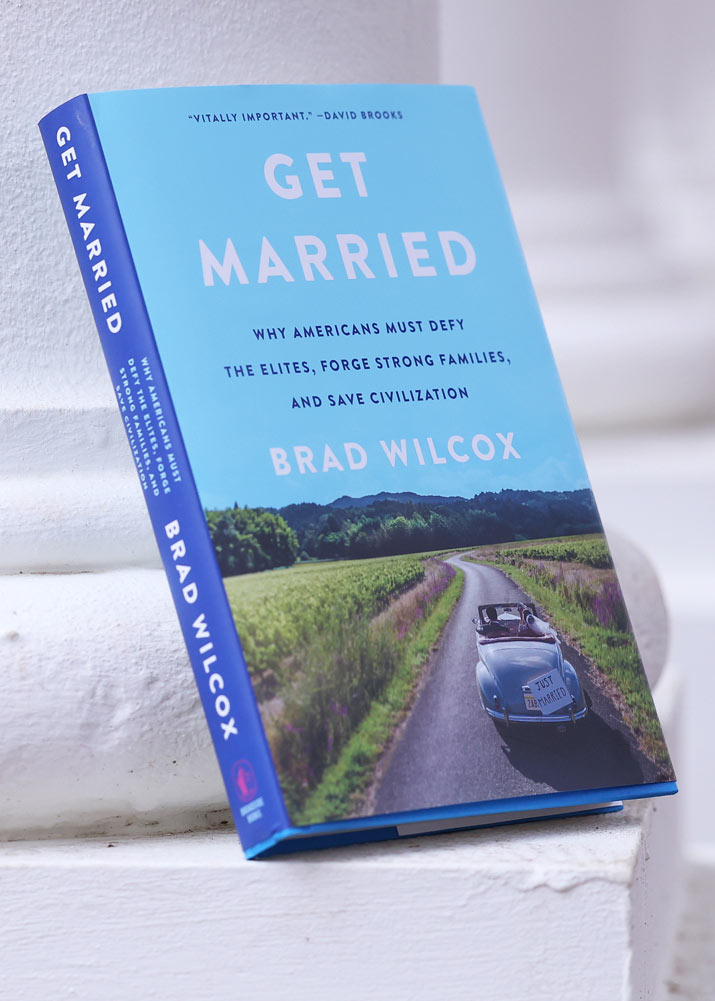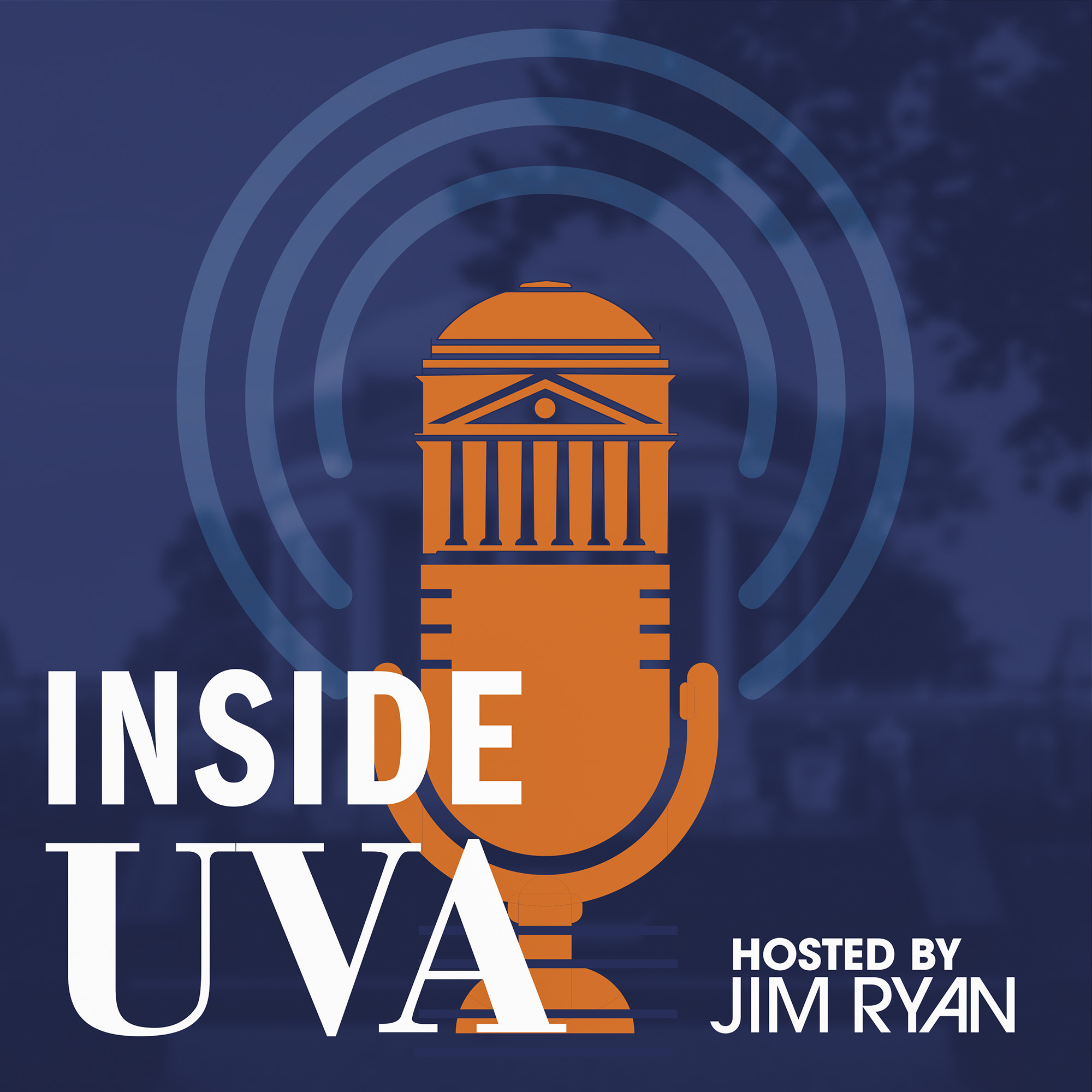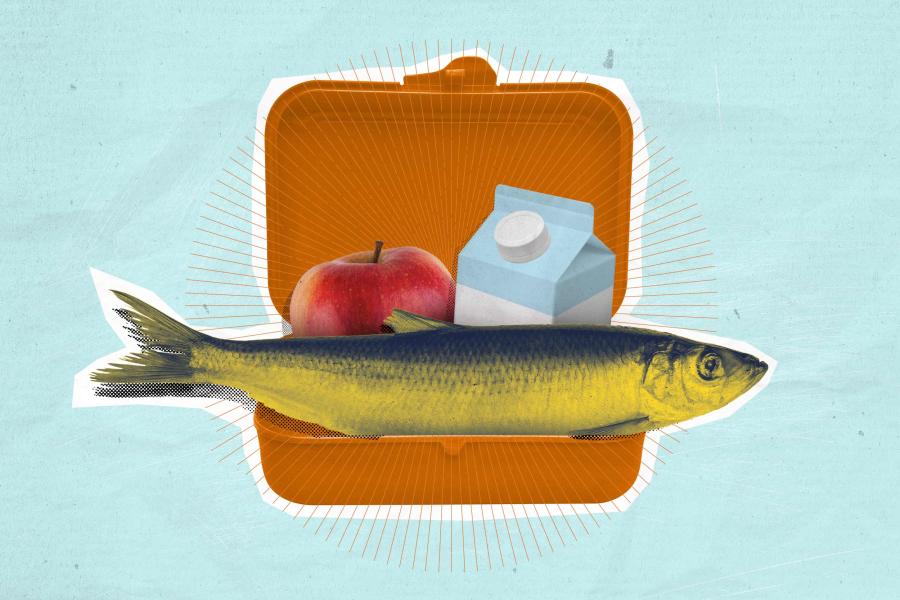Just in time for Valentine’s Day, a University of Virginia sociologist and marriage expert is releasing a book that claims getting hitched and staying hitched is the single biggest predictor of wealth, success and happiness in life.
Brad Wilcox, who also directs the National Marriage Project at UVA, wrote “Get Married: Why Americans Must Defy The Elites, Forge Strong Families and Save Civilization” because, in part, he’s increasingly seen his students feel “meh” about marriage.
“As I have been talking to UVA students in recent years, I am hearing a lot of concern and fear about love and marriage,” he said. “They are worried they won’t be able to find someone good to date and that it will be hard to marry down the road.”
That sentiment is especially high among the women in his classes, he said. Plus, Wilcox said, several media figures, both liberal and conservative, are trying to make the case that marriage isn’t necessary or valuable in modern society. By crunching the numbers, the sociologist says the anti-marriage commentators are badly mistaken.
UVA Today recently chatted with Wilcox about his research and new book.
Q. What are the biggest marriage myths you tackle in this book?
A. The “Flying Solo Myth,” that marriage is of no benefit to men and women today. The “Family Diversity Myth,” that love and money – not marriage – make a family. And the “Soulmate Myth,” that love is valuable only for as long as it makes me feel happy.
The book unpacks and debunks all these myths in more detail, but let me explain a bit about the first myth.

According to sociologist Brad Wilcox, fewer young people – including many of his UVA students – are convinced that marriage should be a life goal. He hopes teaching them about the financial and emotional benefits of marriage might change some minds. (Photo by Matt Riley, University Communications)
We’re seeing left-leaning mainstream media figures say marriage is a bad deal for women, and counterparts on the right saying it’s a bad deal for men. For example, an article in Bloomberg declared single women without kids are getting richer than men, while social-media star Andrew Tate, a big voice in the “manosphere,” has said “there is zero advantage to marriage” for men. (Tate is a wealthy, outspoken American-born British social-media celebrity and former kickboxer who has been charged in Romania with rape and human trafficking).
But my book shows these voices could not be more wrong. For the average man and woman, there is no path more likely to lead to prosperity than getting and staying married.
Q. Some of your assertions include religion as a factor in what makes marriages successful and happy, but there is a growing population that does not follow traditional religious practices, or any at all. Does marriage still benefit them to the same degree?
A. Great question. It is true that religious couples are about 15 percentage points more likely to report they are “very happy” in their marriages and at least 30% less likely to end up divorced. It’s pretty clear that men and women who regularly attend a church, temple or synagogue are more likely to be happily married.
Yet even among Americans who rarely or never attend church, data from the General Social Survey, or GSS, indicate that married men and women are almost twice as likely to be “very happy.” So even secular Americans who are married report more happiness compared to their peers who are not married.
Q. You largely focus on traditional marriage, but do the benefits extend to other types of unions such as same-sex marriage or life-partnering without marriage?
A. In the moment, cohabitating couples are almost as happy as married couples. But they are less likely to go the distance, to endure. That’s in part because cohabitation entails a lot less commitment.
One study finds, for instance, that cohabitating couples who have kids are about twice as likely to break up compared to married couples.
I don’t have a story yet about marriage and same-sex couples. One challenge is that same-sex marriage is relatively new and rare: Less than 1% of married families are headed by same-sex couples, making it hard to find enough same-sex couples in my data to draw meaningful conclusions about the merits of marriage for them.
Q. You write about the outcomes of children of divorce and why so many struggle. Are you suggesting unhappy couples remain together?
A. Let me be clear: I was raised by a single mother and turned out OK on many fronts, including graduating from Mr. Jefferson’s University. Coming from a non-intact family is not a death sentence. Just look at (former president) Barack Obama, raised by a single mother.

Wilcox’s new book makes the case that, compared to their single counterparts, married couples will be wealthier and happier. “There is no path more likely to lead to prosperity than getting and staying married,” he says. (Photo by Matt Riley, University Communications)
But I am also a social scientist. I can tell you hailing from a non-intact family reduces your odds of graduating college by about 50%. And if you are a young man, it increases your odds of landing in jail or prison by about two-fold.
For kids in high-conflict homes, it seems best for parents to part ways. But in situations where there is less conflict – say, a spouse is unhappy or feels like they are growing apart – it seems best for the kids’ sake for parents to try to make it work.
My advice: If you are married with kids and you are not experiencing domestic violence, regular screaming matches, a pattern of infidelity or substance abuse, or something similarly bad, try to work on mending rather than ending your marriage. There are some great programs out there for couples on the brink of divorce who are looking to repair their marriages.
Q. What advice would you give to UVA students about marriage?
A. One of the ideas I share with them is to steer clear of the “Midas Mindset.” This is the idea that what really matters in life is education, money, building your own brand and a great career, rather than focusing on getting married and having a good family. A fair number of my students and others like them gravitate to the Midas Mindset. It is one reason I predict more than 1 in 3 young adults will never marry. That would be a record.
My research indicates marriage is a more powerful predictor of happiness than money, than the degree on your wall, or a job, and nothing compares to a good marriage when it comes to forging a meaningful and happy life.
I met my wife, Danielle, as a fourth-year student at UVA, and we’re still going strong after 28 years of marriage. My hope is that UVA students who take my classes have a better shot at forging a strong marriage and family life of their own.
Media Contact
Article Information
May 1, 2024






